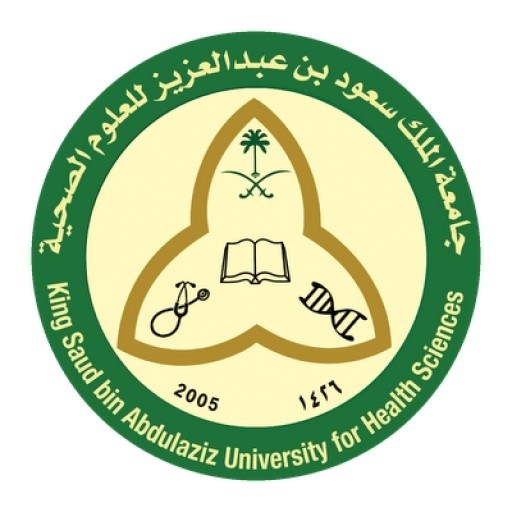Photos of university
Public Health in Health Systems and Quality Management at King Saud bin Abdulaziz University for Health Sciences is a comprehensive graduate program designed to prepare students for leadership roles in the planning, implementation, and evaluation of health services within complex healthcare environments. This program aims to equip students with a solid foundation in public health principles, health systems management, and quality assurance techniques, enabling them to improve health outcomes and ensure the delivery of safe, effective, and patient-centered care.
The curriculum combines theoretical knowledge with practical application, covering topics such as health policy analysis, healthcare quality management, health systems strengthening, epidemiology, healthcare economics, and leadership in health organizations. Students will gain expertise in designing and implementing quality improvement initiatives, managing accreditation processes, and utilizing data-driven approaches to enhance healthcare services. Emphasis is placed on developing competencies in strategic planning, communication, and collaboration with multidisciplinary teams, ensuring graduates are well-prepared to address the challenges faced by modern health systems.
Throughout the program, students engage in case studies, research projects, and internships that provide real-world insights into health management practices. The multidisciplinary faculty, comprised of experienced professionals and researchers, fosters an environment of academic excellence and innovation. The program also encourages critical thinking and continuous professional development, cultivating graduates who are capable of leading change in healthcare organizations and contributing to health policy development at national and international levels.
Graduates of this program are qualified for roles such as health system managers, quality assurance specialists, public health policymakers, healthcare consultants, and researchers. They will be equipped with the skills necessary to assess healthcare performance, implement quality improvement strategies, and influence policy decisions to promote equitable and efficient health services. With a focus on sustainable healthcare systems, this program supports the broader mission of King Saud bin Abdulaziz University for Health Sciences to advance health sciences education and research in the Kingdom of Saudi Arabia and beyond.
Semester 1
- Introduction to Healthcare Management
- Principles of Epidemiology
- Principles of Biostatistics
- Environmental Health
Semester 2
- Social & Behavioral Sciences for Healthcare
- Health Information Systems
- Health Planning, Monitoring and Evaluation
- Health Economics
Semester 3
- Leadership & Change Management
- Quality Management for Healthcare
- Financial Management for Healthcare
Semester 4
- Human Resource Management in Healthcare
- Healthcare Quality Improvement
- Research Project
Requirements
- A Bachelor’s degree obtained from an accredited university in medicine, dentistry, nursing, pharmacy, radiography, laboratories, medical engineering, and management of health information, and information technology, plus two years of work experience within the healthcare sector.
- A minimum GPA of 3.75 out of 5.0.
- A minimum score of 550 in TOEFL examination or a minimum score of 6.0 in ILETS examination.
- Two academic recommendations by previous instructors.
- A letter of recommendation/consent from the employer.
- Applicants will be further interviewed on individual basis prior the final admission.
The financing of the Bachelor of Science in Public Health in Health Systems and Quality Management program at King Saud bin Abdulaziz University for Health Sciences is primarily supported through a combination of government funding, university budget allocations, and external grants. The Saudi Arabian government allocates substantial financial resources to support higher education, with particular emphasis on health sciences to enhance the nation's healthcare infrastructure and workforce capabilities. As a public university under the Ministry of Health, King Saud bin Abdulaziz University benefits from direct government subsidies that cover faculty salaries, infrastructure development, and academic resources necessary for the program’s operation.
Additional financial support may come from partnerships with healthcare institutions, research grants, and international collaborations aimed at advancing public health initiatives. The university also encourages research activities by providing funding opportunities to faculty and students, facilitating innovative projects aligned with national health priorities. Tuition fees are either subsidized or fully covered by the government, reducing the financial burden on students and ensuring accessibility to a diverse student body.
The program's financial structure is designed to ensure sustainable academic delivery while continuously enhancing educational quality through investments in modern facilities, technology, and faculty development programs. The university's strategic plan emphasizes expanding research capabilities and enrollment capacity, which may include seeking additional funding sources such as public-private partnerships or international aid programs related to health system strengthening. Overall, the funding model aims to support the program’s goal of producing competent graduates capable of leading improvements in health systems and quality management across the country.
The Master of Public Health in Health Systems and Quality Management at King Saud bin Abdulaziz University for Health Sciences is designed to prepare graduate students to become effective leaders and professionals in the field of public health, with a specialized focus on health systems strengthening and quality assurance. The program aims to equip students with the necessary knowledge, skills, and competencies to analyze, develop, and implement policies and practices that enhance the efficiency, safety, and quality of healthcare services within various health systems. It emphasizes a multidisciplinary approach, integrating concepts from epidemiology, health management, health policy, and healthcare quality improvement.
Students enrolled in this program will gain a comprehensive understanding of health systems operations, including healthcare delivery models, health economics, health informatics, and organizational leadership. Additionally, the curriculum covers essential aspects of quality management, such as quality assurance, accreditation processes, patient safety, and continuous quality improvement methodologies like Six Sigma and Lean management. These components ensure that graduates are well-prepared to address complex challenges faced by healthcare organizations by designing and implementing effective quality assurance strategies.
Throughout the program, students will engage in a combination of theoretical coursework, practical training, case studies, and research projects to develop critical thinking and problem-solving skills. They will learn how to measure and improve healthcare quality, manage health information systems, and lead multidisciplinary teams to foster a culture of excellence and safety in healthcare settings. The program also emphasizes ethical considerations, cultural competency, and evidence-based decision making, which are vital for effective health systems management in diverse populations.
Graduates of the Master of Public Health in Health Systems and Quality Management program typically pursue careers in hospital administration, public health agencies, government health departments, non-governmental organizations, and international health organizations. They may hold positions such as health services managers, quality assurance coordinators, healthcare policy analysts, or consultants specializing in healthcare quality improvement.
The program is delivered through a mix of lectures, seminars, workshops, and practical sessions, often facilitated by experienced faculty members who are experts in the fields of public health and healthcare management. The university ensures that the curriculum remains aligned with current global standards and best practices, incorporating innovations and emerging trends in health systems and quality management. The program also encourages research and scholarly activities, contributing to the advancement of knowledge in this vital area of public health.
Overall, the Master of Public Health in Health Systems and Quality Management at King Saud bin Abdulaziz University for Health Sciences aims to develop highly capable professionals who can lead health system improvements, promote quality and safety standards, and ultimately improve health outcomes for populations. The program's rigorous academic structure, combined with practical exposure and leadership training, prepares graduates to meet the evolving demands of modern healthcare systems with competence and confidence, contributing effectively to the development of resilient and equitable health services locally and globally.

